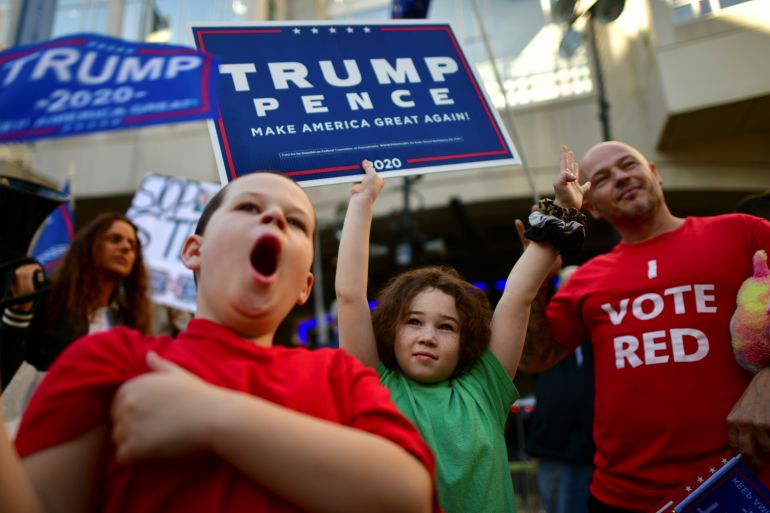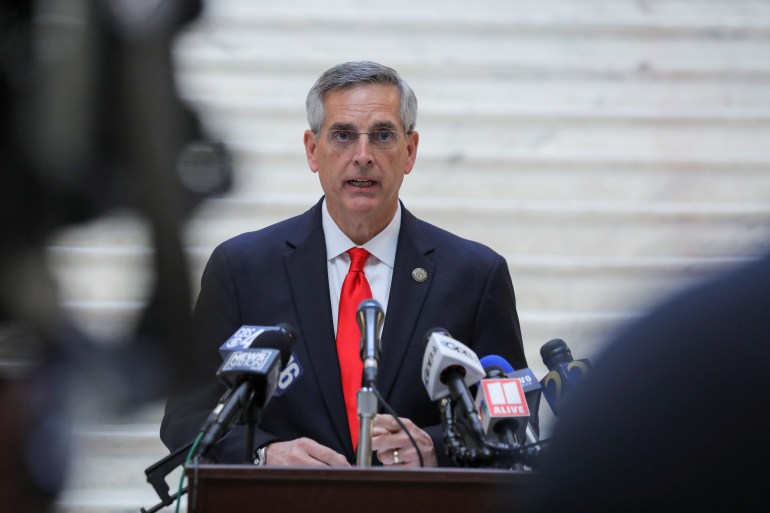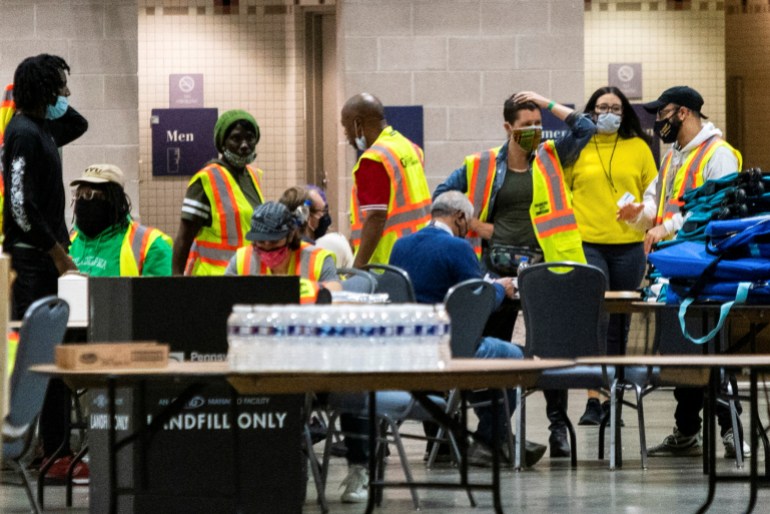Recounts: What are the rules in key contested states?
Trump to seek recounts in Pennsylvania, Wisconsin, and Georgia where apparent winner Biden is ahead by narrow margins.

President Donald Trump has said he will seek recounts in key states like Pennsylvania, Wisconsin, and Georgia where apparent winner Democrat Joe Biden is ahead by narrow margins.
Most states allow candidates or voters to request recounts when the margin of victory is within a certain percentage of the votes. Challenging ballots that have been accepted and counted by state officials is difficult but in some states can provide a reason to go to court.
Keep reading
list of 4 itemsTrump ally Rudy Giuliani files for bankruptcy following defamation case
‘Insurrection’ should bar Donald Trump from US presidency, lawyers argue
Ex-Proud Boys leader Joseph Biggs sentenced to 17 years for US Capitol riot
Here are the rules in key states governing recounts and ballot challenges:
Pennsylvania
State law requires an automatic recount when the margin is 0.5 percent or less. If the margin is above that, voters may petition a state court within five days to order counties to conduct a full or partial recount. The requester must allege errors occurred in the initial count.
Petitioners have to pay for the costs of the recount but may be refunded if fraud or substantial errors are found. A recount of the November 3 election would have to be completed by November 24.
Observers at any recount are entitled to examine ballots and voting machines and may raise objections which must be resolved by county officials subject to appeal to a court.
Georgia
State law does not provide for an automatic recount in Georgia but candidates have a right to ask for a taxpayer-funded recount if the margin is 0.5 percent or less.
Candidates may also petition the Georgia secretary of state for a recount by providing specific evidence of alleged errors or discrepancies. Partial recounts are not allowed.
Georgia state law allows candidates to be present and parties to send representatives to observe a recount. The law does not specify a right to challenge ballots.

Wisconsin
State law in Wisconsin does not mandate automatic recounts but candidates may ask for one. Presidential recounts must be requested from the Wisconsin Elections Commission within one day of completion of the initial count and completed within 13 days.
If the margin is 0.25 percent or less, the state will pay the costs. If it is above that threshold, the requester has to pay. Costs are refunded if the results of the election are changed.
Recounts are done at the county level and must be conducted publicly. Local officials may choose to conduct the recount by machine or by hand. The candidate or his representatives may object to the counting of any ballot and have a right to appeal the outcome in state court.
Michigan
State law in Michigan provides for automatic recounts when the difference between candidates is less than 2,000 votes. Candidates also may request a recount from the Michigan secretary of state within 48 hours of the count and must allege “fraud or mistake” in specific jurisdictions.
Recounts should be completed within 30 days, and petitioners must cover costs subject to potential refund if the recount changes the outcome. Partial recounts are allowed.
The candidates’ representatives are permitted to observe the recounting of individual ballots and make notes of any challenges or objections in the record of proceedings for argument before a board of canvassers.

Nevada
State law does not provide for automatic recounts in Nevada. A presidential candidate may ask the Nevada secretary of state for a recount within three days of the count regardless of the margin. Partial recounts are not allowed.
The party requesting the recount must pay for it and the state has 10 days to complete the recount. If the results are reversed, the costs of the recount are is refunded.
Parties may observe the counting of ballots but may not challenge or interfere.
Arizona
Arizona requires an automatic recount if the margin between candidates is 0.10 percent of the total vote, or less. Candidates cannot request a recount. There’s no set deadline for completion of a recount.
Recount proceedings must be conducted under the observation of the parties. There is no guidance provided for challenges.
-
Research by Nazdar Barzani
